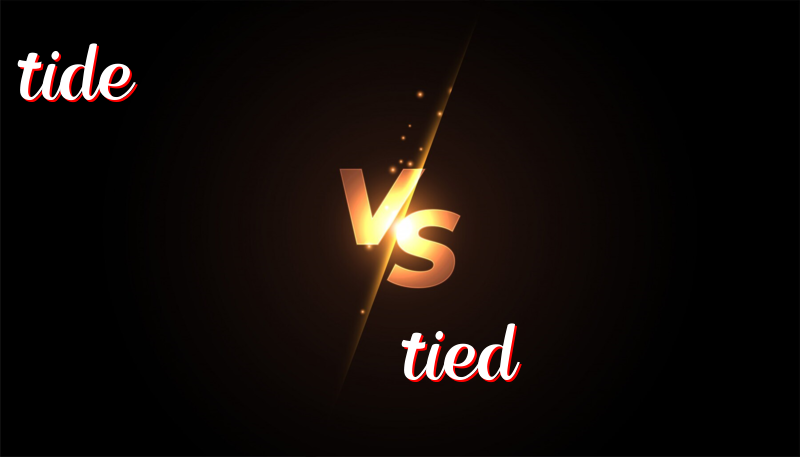英語單詞tide 與 tied的區別
October 19, 2024
「Tide」與「Tied」的區別
在學習英語時,有些單詞可能會因其發音相似而讓初學者感到困惑。「Tide」和「Tied」就是這樣的一對同音異義詞。儘管它們聽起來相似,但卻有不同的意義和用法。我們將詳細說明這兩個詞的歷史、用法,並提供一些記憶方法來幫助理解和區分它們。
「Tide」(潮汐)的歷史與用法
「Tide」這個詞源自古英語「tīd」,意思是「時間」或「季節」。隨著時代的推移,其含義演變為專指海洋的潮起潮落。「Tide」主要用作名詞,描述海水因月亮和太陽的引力而週期性升降的現象。
下面是「Tide」的五個例句:
- The tide is high today, so be careful at the beach.
今天的潮水很高,所以在海灘要小心。 - Low tide is a good time to collect shells on the shore.
低潮時是在海岸收集貝殼的好時機。 - Many fishers plan their work according to the tides.
許多漁民根據潮汐來安排他們的工作。 - The tide will turn at around noon.
潮水將在大約中午時轉變。 - We watched the tide go out as the sun set.
我們在日落時看著潮水退去。
「Tied」(綁住)的歷史與用法
「Tied」是動詞「tie」的過去式和過去分詞,這個詞來源於中古英語的「tīgan」,意為「綁」或「系」。當使用「tied」時,通常表示某物被緊密地系住或約束。
下面是「Tied」的五個例句:
- He tied the rope tightly around the tree.
他把繩子緊緊地綁在樹上。 - The shoes were tied too loosely and came undone.
鞋子綁得太鬆,結果散開了。 - They tied the boat to the dock to keep it secure.
他們把船綁在碼頭上以確保它安全。 - She tied the gift with a beautiful ribbon.
她用一條漂亮的緞帶把禮物綁起來。 - The score was tied at the end of the game.
比賽結束時,比分是平的。
記憶「Tide」與「Tied」的區別的方法
為了記住這兩個單詞的區別,可以使用與其意義相關的詞彙來形成聯想。「Tide」與水有關,可以聯想到「水波起伏」這種週期性的現象。而「Tied」與繩結有關,可以聯想到「綁結」這一具體的動作。
總結
總結來說,「Tide」是一個描述自然現象的名詞,主要和海洋中的潮汐變化相關。而「Tied」是「tie」的過去形式,通常用來描述某物被綁住。記住這一點,能幫助我們在聽說或寫作時,正確區分和使用這兩個詞。

Leave a Reply
You must be logged in to post a comment.